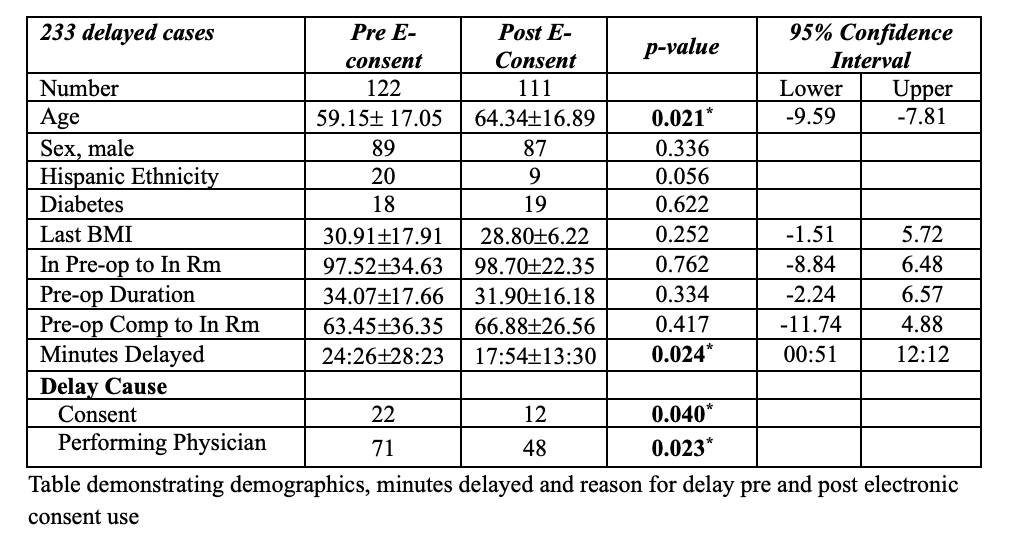Back to 2025 Abstracts
Implementation of Electronic Consent Improves First Start
Olamide Olawoyin, MD, Shayan Smani, BSc, Ankur U. Choksi, MD, Marianne Passarelli, MD, Marianne Casilla-Lennon, MD.
Yale New Haven Health, New Haven, CT, USA.
BACKGROUND: Electronic consents (e-consents) have been increasingly implemented based on improved clinical efficiency and environmental sustainability. Recent initiatives at our institution have focused on improving on-time first start operating room (OR) cases, including the implementation of the e-consent. We assessed the impact of e-consent use on first start delays at one tertiary care institution.
METHODS: A retrospective analysis of ambulatory urological procedures was performed to compare OR first start delays prior to and after the implementation of e-consents in 2022 and 2024, respectively. Patient demographics, time from pre-op to room arrival, presence of delay and quantity of the delay were evaluated. Cause of delay was identified and analyzed as a sub-set.
RESULTS: There were 410 ambulatory urological surgeries and 233 of them were delayed. Of the delayed cases, 122 were prior to e-consent implementation, in 2022 and 111 were after, in 2024. Pre implementation delay decreased from an average of 24 mins to post-implementation delay of 17 min (p 0.024). A statistically significant decrease in delays related to surgeon factors (missing consent, incomplete marking, missing H&P) was found from 71 cases pre implementation to 48 cases post implementation (p 0.023). Incomplete consent was independently associated with more delays pre-e-consents implementation vs. post implementation (22 vs 12, p 0.040).
CONCLUSIONS: The universal use of e-consents significantly improved first-start OR case delays for ambulatory urological surgeries at one tertiary institution by 7 mins. Cost savings can be extrapolated to approximately $117,530 per year based on previous literature on OR cost per minute.

Back to 2025 Abstracts
